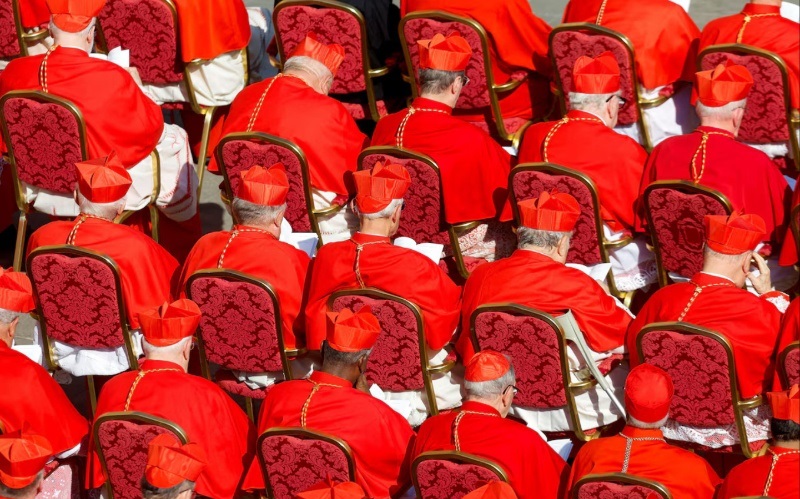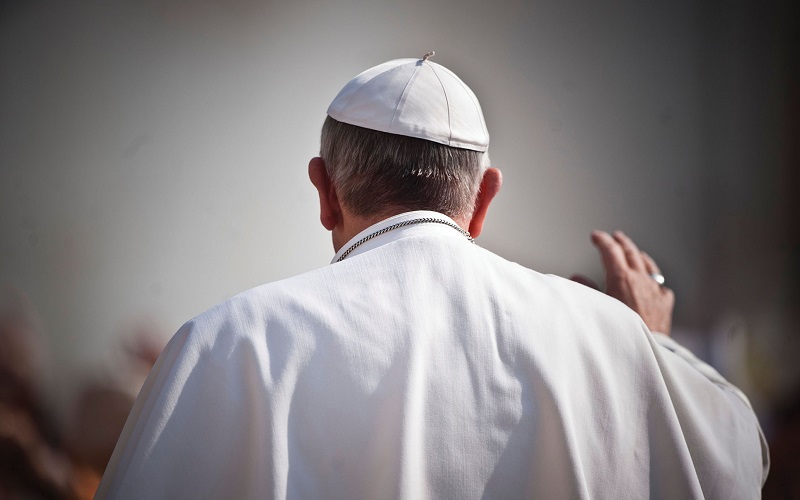
The media worldwide have begun speculating about possible names for the next pontificate. It’s not just journalistic curiosity but also an attempt to influence the next Conclave somehow.
The more the same names are repeated, the more the media seems to be telling the cardinal electors: “Look, the world expects the pope to be chosen from among these names we have given you.”
Of course, the Conclave is not completely immune to public pressure—nor to pressure from the worldly powers. But neither is it in the hands of these forces. It follows its own logic and has its internal dynamics. Above all, it is the supreme moment when the Catholic Church affirms its independence.
This Conclave has no candidate who can impose himself. No cardinal does not need mediation to create consensus within the Conclave because he already enjoyed it before the Conclave began (as was the case with Ratzinger’s election). At the moment, the Catholic Church lacks figures who, due to their background, have the stature of the pope. It could be a problem, of course, but it also represents an opportunity—a Conclave elected Pope Francis in a similar situation.
Compared to that Conclave, however, the one that will gather shortly is characterized by a profound discontinuity—one desired by Pope Francis himself. The geographical origin of the cardinal electors has changed, creating a Conclave that reflects the decentralized, global Church shaped by Pope Francis. Most cardinals who will elect the next pope do not know each other. They, therefore, need time to get to know each other and understand each other’s expectations and concerns that they bring to the Conclave.
For this reason, the next pope will not emerge solely from what lies behind us (as the media speculation about the papabili would have us believe), but also and above all from the coming weeks. The profile of the next pope, well before possible names, will emerge from the General Congregations of Cardinals before the electors enter the Conclave.
These Congregations will be the democratic forum in which the criteria and guidelines of the Catholic Church for the next decade will be discussed. These criteria and guidelines will define the profile of the pope who best corresponds to them. From there, the work on specific names will begin in the Conclave.
A first issue will certainly concern how much and what continuity/discontinuity to give to Francis’ pontificate. But this will not be the only decisive question discussed during the General Congregations.
Today, as it imagines the future pope, the Catholic Church cannot fail to take into account the upheaval of the world order and the specter of widespread wars that can quickly turn into a conflict, not only military on a global scale. The world is on the brink of this abyss, and Pope Francis, through the work of Vatican diplomacy, has not only been a point of reference but has also made the Catholic Church the only global institution committed to dialogue with all parties in conflict with each other. On this point, the current state of the world, the growing geopolitical tensions, and the ongoing wars call for the Catholic Church to maintain a marked continuity with the pontificate of Pope Francis.
Today, the Catholic Church can no longer think only of itself in the pope’s election, that is, limit itself to questions of doctrine or pastoral care. Given the frail situation of international affairs, the Church must continue to play a decisive role in diplomatic relations and as a moral institution that seeks to create fraternal and peaceful relations between people and nations. It is possible that the cardinal electors will agree on this mandate, which is at the same time a religious and geopolitical one, making it a decisive aspect of the style of government of the Catholic Church in the years ahead.
This style of governance will have to hold together three dimensions that are not easy to coordinate: the leadership of the pope, the decentralization of the Catholic Church, which increases the importance and responsibility of the continental Churches, and the function of the Roman Curia. In this sense, if Pope Francis has initiated a process of internal synodality within the Catholic Church, the next pope should give shape to a synodal, concerted, and multilateral style of governance of the Church itself.
In this perspective of synodal governance of the Church, Asia represents a real test case. It is possible that the challenges coming from this immense, highly diverse continent will become part of the criteria that will shape the profile of the next pope. In Asia, the Catholic Church is called upon to engage in dialogue with other religions and cultures and to imagine the creation of a creative and constructive minority Catholicism in its dialogue with different faiths and cultures. And, as far as China is concerned, it must do all this while considering the Vatican’s decisive geopolitical role in the organization of its pastoral practices.
While at the dogmatic level, the pope can govern the Catholic Church alone, Asia reminds the Church that, in reality, an absolute and monarchical papacy is no longer possible today. The Church can be a creative and constructive minority in Asia, and not only there, only if the next pope can adopt an effectively synodal style of government—making the papacy the point of synthesis between the administrative work of the Roman Curia and the cultural practices of the local Churches in the pastoral field.
Looking to Asia during the Conclave means looking not only at the pope but also at his collaborators. Here, in particular, the Secretariat of State, the Dicastery for Interreligious Dialogue, the Dicastery for the Eastern Churches, and Propaganda Fide (now integrated into the Dicastery for Evangelization) come into play.
So much for the big picture of the upcoming Conclave. It may be that all those little stories of ordinary people, Catholics and non-Catholics, non-believers, and followers of other religions who have found a role model in Pope Francis will also play a part in the Conclave. There is a large anonymous crowd that today feels the loss of a pope who stood on the side of the least and the forgotten, who made sure that no place or tragedy in the world was forgotten, and did not hesitate to oppose the logic and interests governing our world.
The next Conclave could also take this into account. Choose a pope who makes the Catholic Church an institution of advocacy for our shared humanity – regardless of religion, gender, or political beliefs. A pope not only for the Church he governs but for global humanity – which is the very meaning of what the Roman Church says about itself: namely, to be Catholic.







